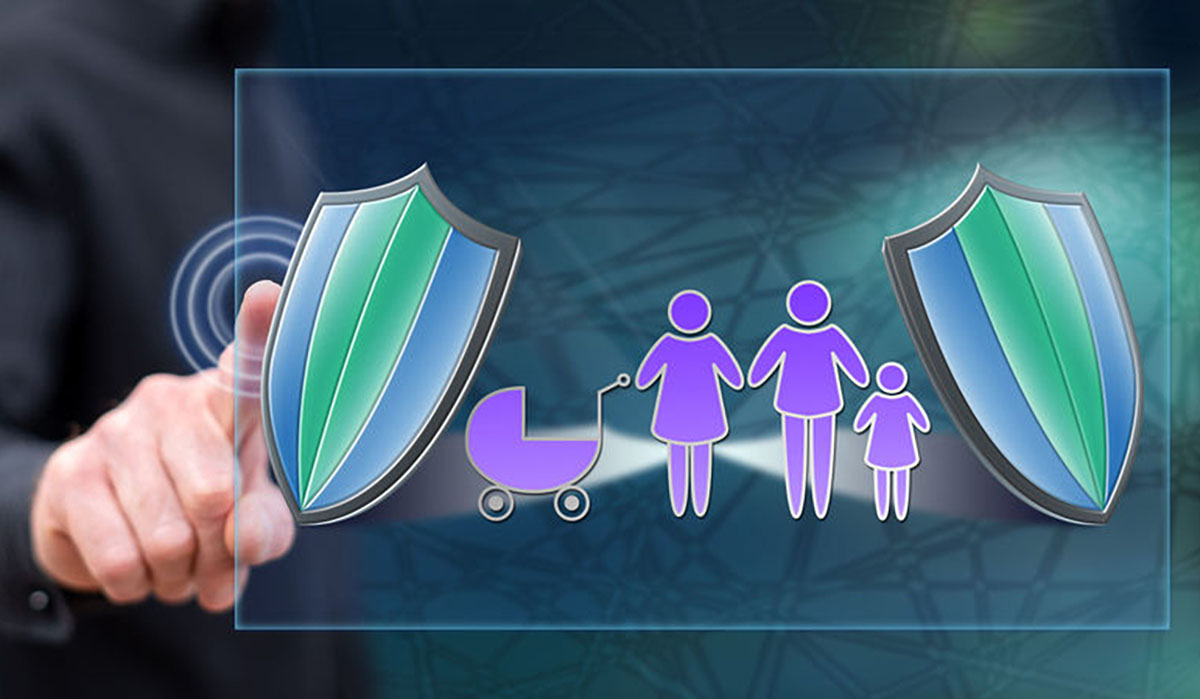What will happen to your assets if something happens to you?
Most people are predominantly focussed on maximizing the value of their assets and achieving high wealth status – financial independence, passive income streams, a higher income.
Inevitably, there are moments when we wonder what would happen to our assets if anything happened to us. It might be when we travel by plane, or when something happens to a person we know and we see the family struggling to identify and locate the person’s assets, or simply when we are conscious of a sense of responsibility towards our loved ones.
Will our partner know where to find all our assets? Insurance policies, bank accounts, pension funds… Oh, and what about our small investment portfolio, our company stocks, company shares, cryptocurrencies? All our digital, financial, and physical assets?
These questions and concerns are very relevant. The sad reality is that assets worth billions of dollars stay unclaimed in banks, insurance companies, trading platforms, and other asset companies. There is a legal requirement for these companies to return such abandoned and unclaimed assets to the state, where they are stored in so-called unclaimed asset funds, but this is a slow process. In some states in the USA and countries globally, it only happens after 15 years.
So the companies keep and use our assets instead of releasing them to our families and loved ones. This, unfortunately, is the reality for many families which struggle to find and claim their rightful legacy. And sadly, only an unforeseen event happening to us reveals that gruesome reality.
How can you be sure that your assets will be in the right hands if anything happens to you?
Of course, our main question will be – how can we protect our assets? How can we be sure that our loved ones will be able to identify, locate, and claim them? Let’s see how we can achieve that.
Option 1: using shared online documents and sheets
Some people try to catalog their assets in online sheets or documents and share them with their families. This is definitely better than nothing, but this approach has many drawbacks.
Usually people feel comfortable sharing such details only with their closest family members, for example, their partner. What will happen to that information if your partner loses the password or forgets how to access it? Or if something happens to your partner?
The file is not encrypted – what if it is hacked by malicious people? Do you feel comfortable uploading supporting documents, for example, insurance policies or bank details, unencrypted, in a public drive?
Yes, a shared document or sheet is better than nothing, but it still has too many disadvantages.
Option 2: keeping the documents in folders at home
Again, this approach is better than nothing, but it still has many of the drawbacks of option 1. You feel comfortable sharing these documents only with your closest family members. Also, this approach works primarily if your family – your partner, children, and parents – live in one place. If, for example, your children live in other countries or cities, and only your partner is aware of the location of these folders and documents, the risk is again very high – what if something happens to your partner?
And while this option does not have the risk of hackers, such as option 1, it brings new risks of its own – a natural disaster or fire destroying the documents, or theft, for example.
Similar to option 1, keeping the information in folders at home is better than nothing, but it still has too many disadvantages.
Option 3: using secure digital vaults
Secure digital vaults are a better option than online sheets and documents, primarily because they provide way better security. Usually, the information they store is encrypted, and they often have two-factor authentication as an option for additional protection.
Another advantage of secure digital vaults is that you can share the information even with family members who are living in other cities or countries.
The drawback of personal digital vaults is that they lack a digital inheritance feature. For example, they don’t provide the capability to share the information in the vault only in the case of an unforeseen event, and not before that. With secure digital vaults, you either share the information now, or you don’t share it.
Because of that, people usually use secure vaults primarily to catalog their assets and have them listed in one place. Then they usually share this only with their closest family members, for example, their partner.
They don’t share it with members of their extended family, and there is no possibility of arranging for their extended family to be notified about these assets only if something happens to the primary beneficiaries.
There is also the risk that the partner might lose the password or forget how to access it. Will your children remember the login details to the vault for the next 30 years? Or something might happen to the family members with whom you’ve shared the information, and it would be lost for the other heirs.
This risk is increased when, for example, the family has children who are still too young to have the information in the secure vault shared with them, elderly parents, or simply family members which are not financially proficient.
Option 4: using a will, estate planning, and trusts
Some people decide to hire attorneys and wealth managers to prepare a will and an estate plan to protect their assets.
This is a very comprehensive measure and useful especially from a legal perspective, ensuring, to a very large extent, that the assets will be protected and the designated beneficiaries will inherit them.
But estate planning and wills have several disadvantages:
- They are expensive (can get very expensive).
- They require a lot of effort and are time-consuming.
- They don’t allow for an easy update of the asset catalog.
While the first two drawbacks are clear, the last one is worthy of attention. The reality is that most people have dynamic assets:
- An expat moves to a new country and opens a bank account, joins a local pension fund, and takes out insurance there.
- An employee in a tech company starts a new job and gets a new batch of stock options or RSUs in another asset storage system.
- A person decides to open a new bank account or to change the bank altogether.
- A person buys a new insurance policy, invests in stocks or cryptocurrencies, takes out an additional retirement annuity, or generates new streams of passive income.
This is why peoples’ assets are dynamic and change often. This is very different from one hundred years ago when most people’s assets were primarily static, not so numerous, and not so complex.
For this more stable world of the past, estate planning, wills, and trusts were perfect. But they are not fit for the job in the dynamic asset catalog reality that we live in.
Even if you have the best will and trust, part of an estate plan crafted by very skilled attorneys, they will be of little value to your family members if your current assets are not reflected in your estate plan and your family members cannot identify and locate your assets. In this case, they will simply not be able to claim and inherit them.
Option 5: using digital inheritance services
Digital inheritance services have the capabilities of secure digital vaults to securely catalog and store your assets in encrypted environments, but in addition, they enable you to decide what information to share, when, and with whom.
In other words, you might share the information about your assets with your closest family members, for example, your partner, but you can choose to share information with members of your extended family only in the case of an unforeseen event.
This is a big advantage over digital vaults.
Many digital inheritance services also allow clients to designate a hierarchy of beneficiaries. For example, you might easily create the following scenario:
- Your partner (who) to be informed immediately about your assets (when – now)
- Your siblings (who) to be informed about your assets only if something happens to you (when – in the case of an unforeseen event)
- Your closest cousins (who) to be informed about your assets only in the case of an unforeseen event and only if your partner and your siblings are not available (when + hierarchy)
At the core of digital inheritance services is the ability to detect unforeseen events. This is usually achieved through email verification and phone confirmation to avoid false triggering of the notifications to the beneficiaries, often with integration with social networks to detect “alive” signals, for example, when logging in.
One of the biggest advantages of digital inheritance services is that they have multiple capabilities to ensure that the beneficiaries will actually be informed about the designated assets. These include email notification and phone calls with the beneficiaries to confirm that they have received the necessary information which will allow them to identify and locate the assets.
Digital inheritance services provide additional protection for your assets and your loved ones, for example, legal support for the beneficiaries in the process of claiming the assets. This is extremely valuable in cases when the family members are not financially proficient. In this case, the legal packages ensure that they will receive the support needed, without paying any additional fee.
Who to name as your beneficiary?
The question is especially important if you have to share the information with your beneficiaries immediately. In this situation, relevant to online documents and sheets and secure vaults, people usually share this information only with their closest family members, for example, their partner.
Digital inheritance services enable you to decide not only with whom to share the information but also WHEN to share it.
One of the great advantages of digital inheritance services, such as DGLegacy, is that they enable people to decide WHEN to share the information about the assigned assets, as well as to implement a hierarchy – for example, to inform your siblings about your assets only if your partner is not around.
This gives you a lot of freedom when you choose your beneficiaries. You are not pressed to share your information immediately.




